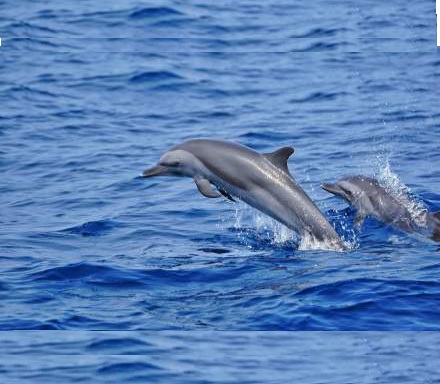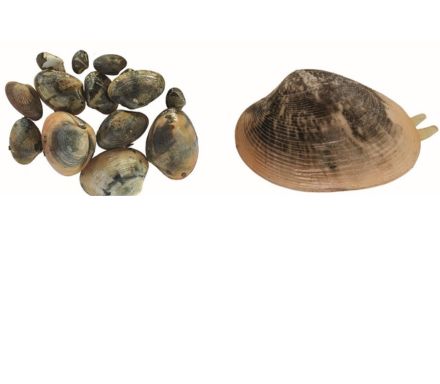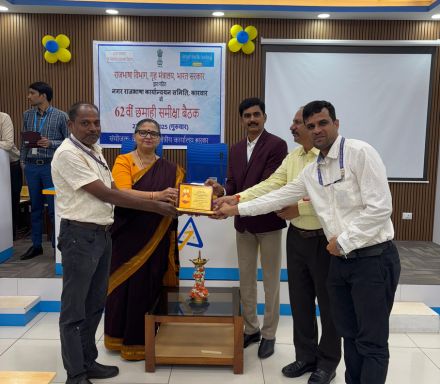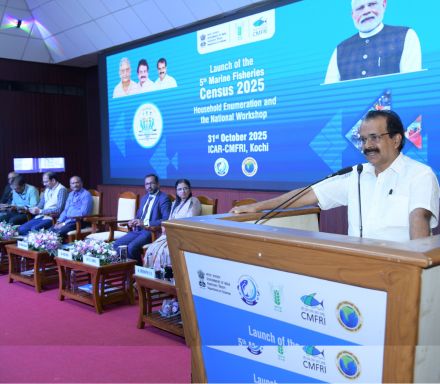
ICAR-CMFRIs Scientific Research on Marine Mammals Helps India Secure Multi-Billion Dollar Seafood Trade with U.S.
Success Story
ICAR-CMFRI’s Scientific Research on Marine Mammals Helps India Secure Multi-Billion Dollar Seafood Trade with U.S.
In a landmark achievement for India’s marine fisheries and seafood export sector, the United States has officially approved Indian seafood exports as compliant with its stringent Marine Mammal Protection Act (MMPA), a decision that safeguards a multi-billion-dollar trade and prevents a potential ban.
This historic success was made possible through the pioneering scientific leadership of the ICAR–Central Marine Fisheries Research Institute (CMFRI), Kochi, which provided the critical data and analysis required for India’s compliance.
The U.S. government had mandated all seafood-exporting nations to scientifically demonstrate that their fishing practices do not cause unsustainable harm to marine mammals. India’s seafood trade with the U.S. faced uncertainty due to the absence of reliable, large-scale data on marine mammal abundance and its bycatch in Indian EEZ.
Rising to this challenge, ICAR-CMFRI, with the financial support through Marine Products Export Development Authority (MPEDA), launched a groundbreaking research initiative in 2020 that produced India’s first scientifically validated data on marine mammal abundance and bycatch. These findings formed the backbone of India’s “Comparability Finding Analysis Report”, which was recently accepted by the U.S. National Oceanic and Atmospheric Administration (NOAA), ensuring uninterrupted seafood exports to the U.S.
Nation’s First Marine Mammal Stock Assessment
Commissioned by MPEDA in April 2020, CMFRI implemented the ambitious project titled “Assessment of Marine Mammals Stock and Bycatch of Marine Mammals and Sea Turtle”. The institute conducted India’s first-ever comprehensive marine mammal stock assessment in collaboration with MPEDA, Fishery Survey of India (FSI) and ICAR-Central Institute of Fisheries Technology (CIFT).
Marine mammal stock assessment was carried out at species level within India’s EEZ through vessel-based surveys conducted separately in two strata, coastal and offshore, using the internationally accepted line-transect methodology.
This monumental survey yielded the first-ever abundance estimates for marine mammal species in Indian waters. The first phase of the study estimated the abundance of 18 marine mammal species, including the Blue Whale, the Sperm Whale, dolphins, and porpoises.
The institute also estimated the Potential Biological Removal (PBR) — the sustainable limit of incidental catches — and compared it with actual bycatch data collected through interviews with over 8,000 fishermen. The findings showed that the estimated annual bycatch of marine mammals is well below the permissible limit, confirming that Indian marine fisheries operate within sustainable levels.
This achievement is a testament to the scientific excellence and dedication of the CMFRI team. This diplomatic and economic success emphasizes CMFRI’s vital role in national policy and reflects India’s growing leadership in sustainable fisheries management and blue economy. By aligning science, policy, and trade, CMFRI has helped secure not only India’s seafood exports but also the long-term health of its marine ecosystems.















